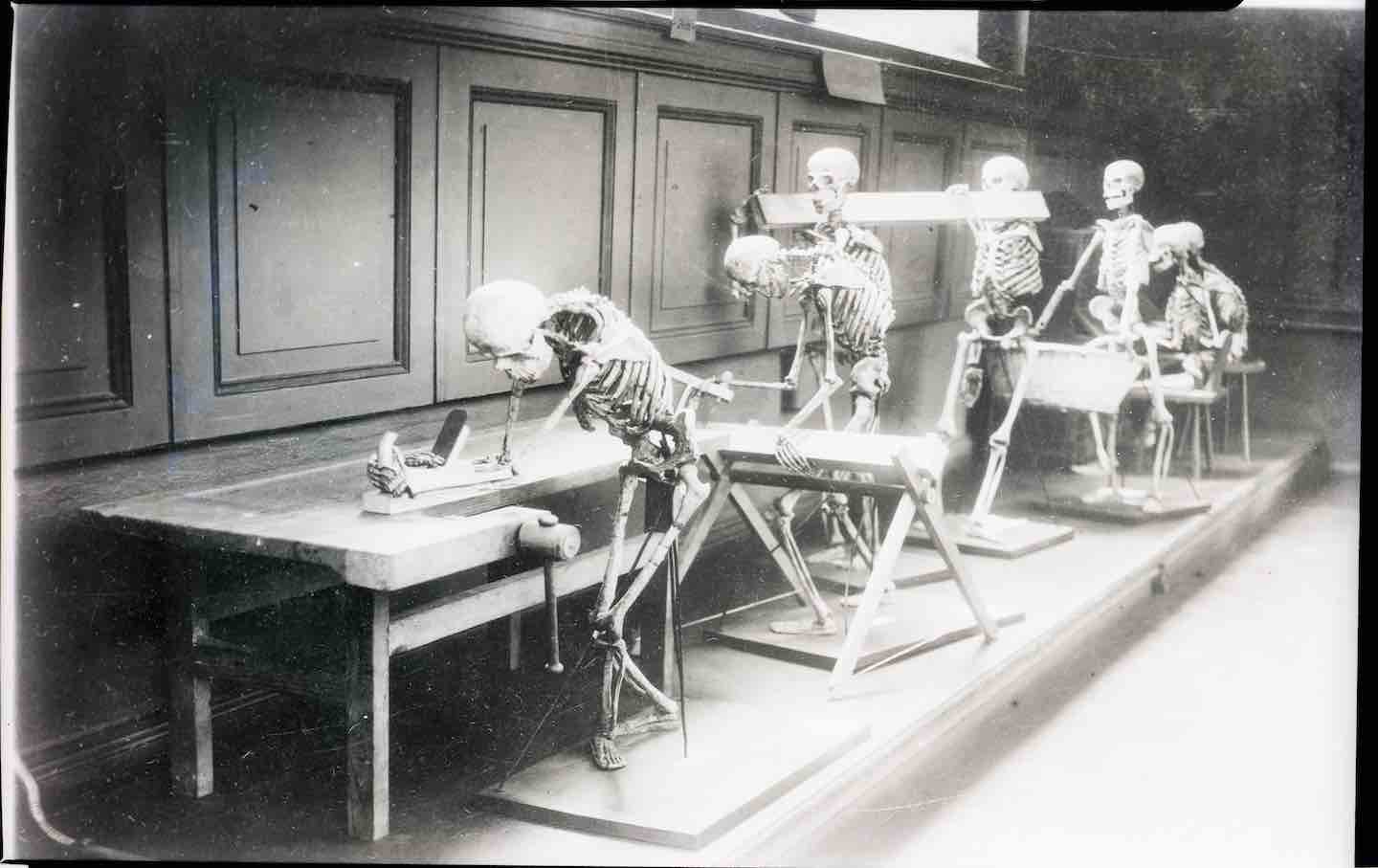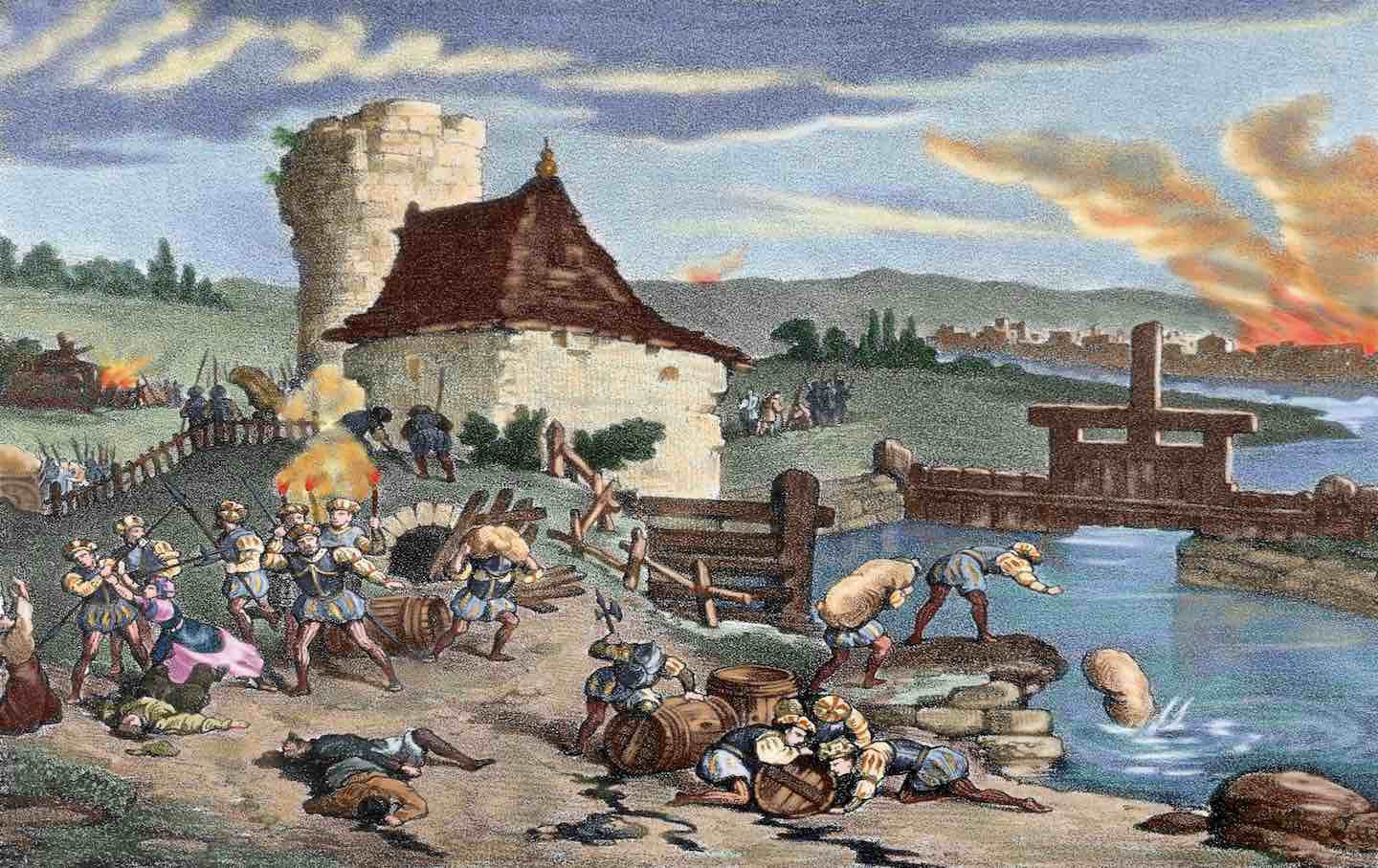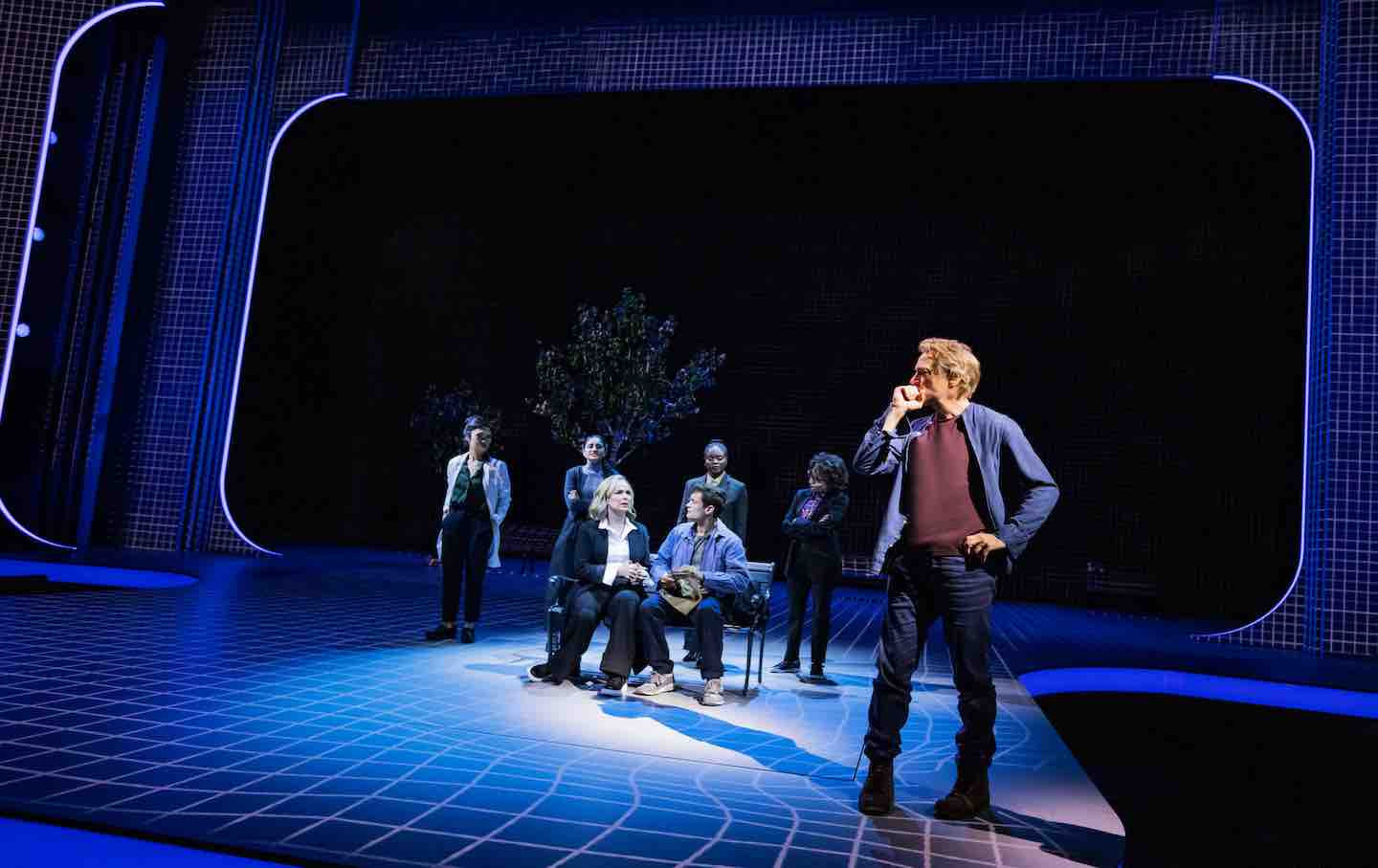The Body in Fragments
In 1904, thirteen geisha girls visited the St. Louis World’s Fair,
to be exhibited.
She drinks peppermint tea for the first time.
It cools her as if winter hurried just for her.
Outside, humid air ballooning a shirt on a clothesline.
At night the mist becomes so thick it feels like a person.
Once she placed a green bottle on the porch to gather him
and drink dregs of him, her teeth hidden.
Daily practice of English: maze, meteor, marsh.
Advanced level: marzipan, mating, mesmerized.
In return, she teaches Japanese. Mizu is water,
matsu to wait, homonym for pine tree (chuckle of confusion).
Mizu o matsu, to long for water.
If she were an ocean, she would overflow.
She loves marsh—the ooze, the thickness of it.
She opens her mouth wide enough to swallow a small tangerine
but the word comes out wrong, overripe,
making her jaw ache. Her flaw charms her guests
like a glass eye in a comely face.
The Japanese numa, she says, represents the wary gait of a farmer,
nu one step, ma next, so as not to sink.
You could eat wind and be thin and afloat
or you have to be the weight of an eyelash.
I marsh you. She means to hold her lover in her arms
and allow him to sink—earth at its tenderest, most welcoming—
until he is clean flesh.
Persimmon is kaki, every labial sliced off, angular.
We have no persimmon, they say, so try this for your tea ceremony
and they give her a slice of pear, dotted with an evening gnat.
She scratches the gnat off with the tine of a fork,
and blows it onto her palm.
She wishes she could blow a mole off her chin like that,
the size of a sesame seed, the only defect on her snowy skin.
But with whose breath—lover, mother,
or one of the girls who seem clean.
I’d ask her to eat this pear first and sweeten her breath.
When she blows on my chin, I will close my eyes and become
a swaying field of wheat.
A gift arrives—gossamer from Virginia, wrapped in tissue paper.
At dawn it falls over her shoulder.
She takes it off at noon and folds it over her lap,
now heavier, having absorbed her sweat,
and finally hers.
A mirror makes her worried about a gap between her front teeth.
Soon, abundant winter hair,
a sick planetarium spinning in her skull.
Sora is the sky, kumo the clouds, which also means spider.
A spider eats clouds to make a web
in which she is caught with her parents and her lover.
When she moves, the web trembles and they look for her.
Ue means both hunger and above, so she looks up
when she is hungry. A cloud breaks into mouthfuls
and fills her. At dinner, they give her a glass rabbit,
one foot missing. She presses him against
her powdered neck, hoping he will mistake it
for a snowy hill. When she looks out the window
for a new landscape, she thinks, If I carry that meadow,
folded in my pocket, and spread it back home,
our cows will go mad. In the middle of the meadow,
a night lake with a pleasure boat. She wants
to touch its soft pupil, make it blink and swallow her.
We cannot back down
We now confront a second Trump presidency.
There’s not a moment to lose. We must harness our fears, our grief, and yes, our anger, to resist the dangerous policies Donald Trump will unleash on our country. We rededicate ourselves to our role as journalists and writers of principle and conscience.
Today, we also steel ourselves for the fight ahead. It will demand a fearless spirit, an informed mind, wise analysis, and humane resistance. We face the enactment of Project 2025, a far-right supreme court, political authoritarianism, increasing inequality and record homelessness, a looming climate crisis, and conflicts abroad. The Nation will expose and propose, nurture investigative reporting, and stand together as a community to keep hope and possibility alive. The Nation’s work will continue—as it has in good and not-so-good times—to develop alternative ideas and visions, to deepen our mission of truth-telling and deep reporting, and to further solidarity in a nation divided.
Armed with a remarkable 160 years of bold, independent journalism, our mandate today remains the same as when abolitionists first founded The Nation—to uphold the principles of democracy and freedom, serve as a beacon through the darkest days of resistance, and to envision and struggle for a brighter future.
The day is dark, the forces arrayed are tenacious, but as the late Nation editorial board member Toni Morrison wrote “No! This is precisely the time when artists go to work. There is no time for despair, no place for self-pity, no need for silence, no room for fear. We speak, we write, we do language. That is how civilizations heal.”
I urge you to stand with The Nation and donate today.
Onwards,
Katrina vanden Heuvel
Editorial Director and Publisher, The Nation








